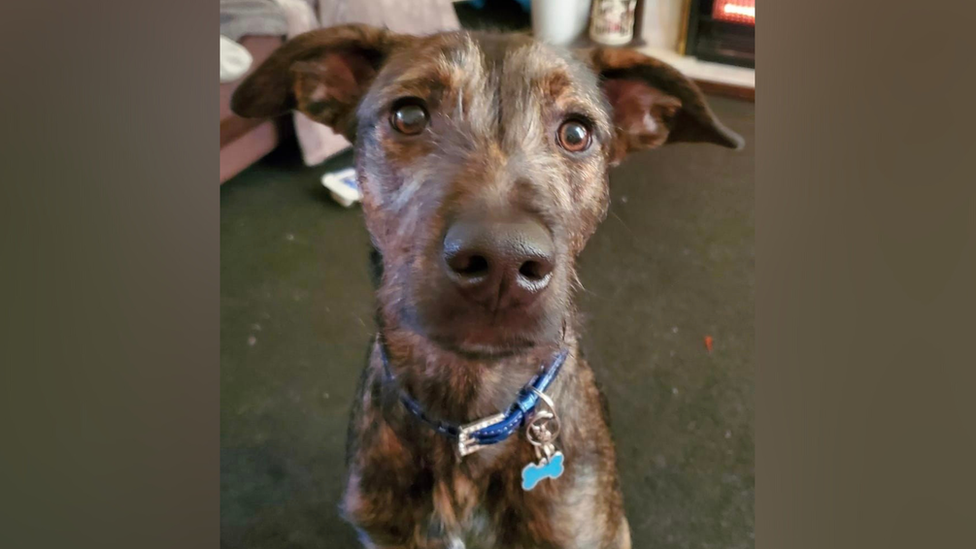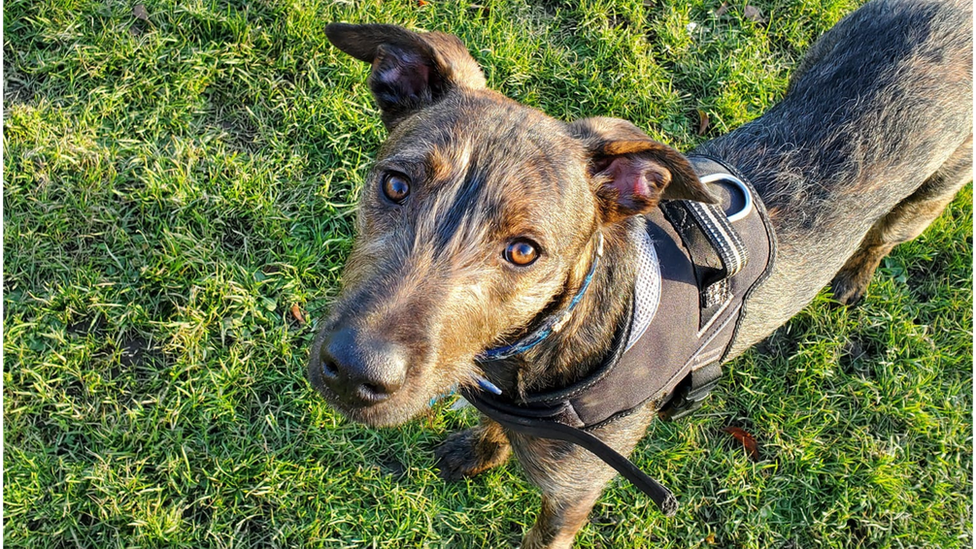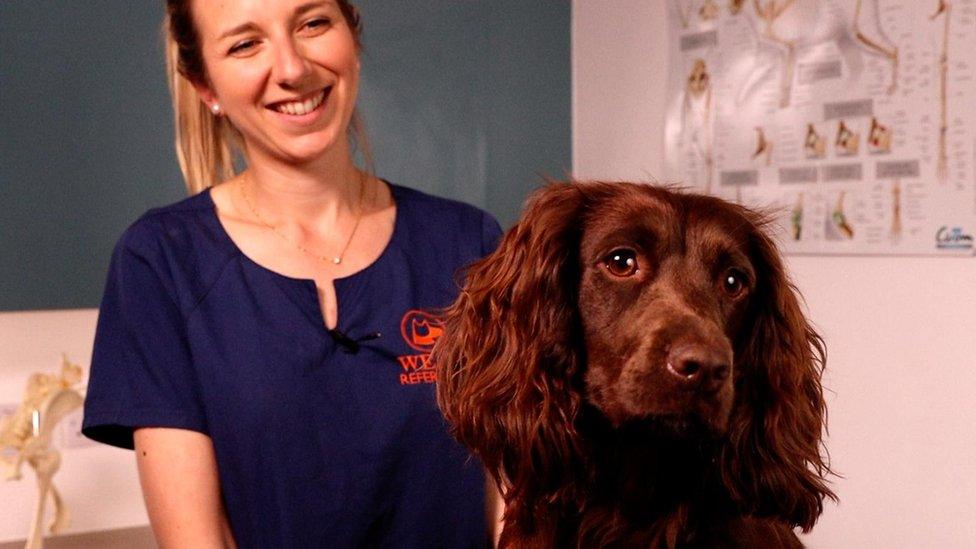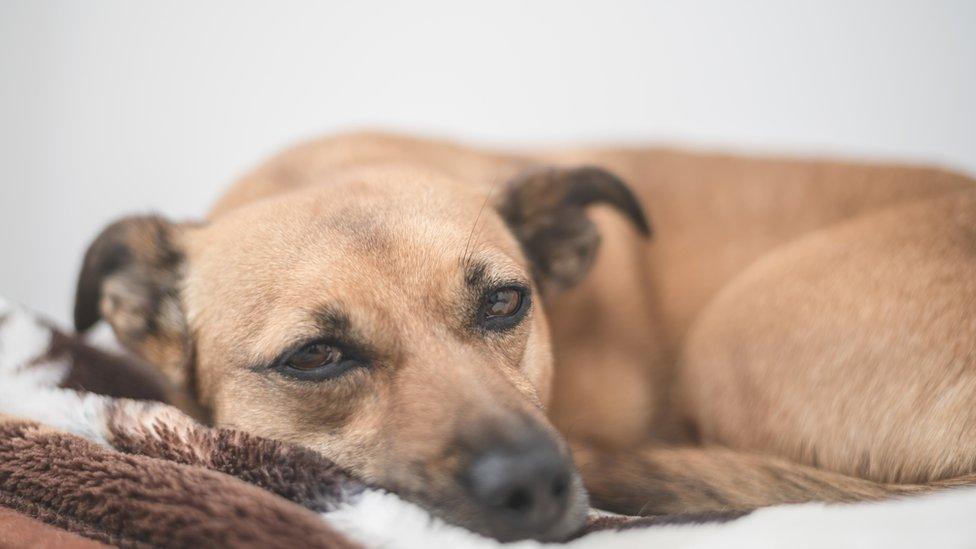Warning after County Durham dog dies from parvovirus
- Published

Teddy died about 48 hours after becoming ill with parvovirus
Dog owners have been urged to get their pets vaccinated against parvovirus following a reported rise in cases in the North East.
Catrina Louise, from County Durham, lost her eight-month-old puppy barely 48 hours after he became ill last week.
Teddy had become lethargic, refused to eat or drink and was vomiting - all common symptoms of the virus.
Wear Referrals in Bradbury said it had been dealing with an increase in positive cases in recent months.
The virus can affect all breeds and ages and can prove fatal if the symptoms are not treated quickly.
It can be transmitted through direct contact but also via infected faeces or in the ground.

Teddy was put down after testing positive for parvovirus
Ms Louise said her mixed-breed whippet had been fit and healthy at the weekend but by Tuesday lunchtime he had been put to sleep.
"He was not not himself, he was becoming very poorly. We got him to the vets only to find out he had parvovirus, me and my partner broke down," she said.
"We have no idea how he got it or where it come from, but I've been told it can come off your shoes when you walk into the house, linger on your clothes and pass onto your dog."
Despite Teddy being fully vaccinated and otherwise healthy, his body was not strong enough to fight off the disease.
Ms Louise urged all dog owners to be vigilant and keep up their animal's vaccinations.

Chiara Giannasi, head of internal medicine, urged owners to act
Chiara Giannasi, from Wear Referrals in County Durham, said staff had seen a rise in positive cases.
She said dog owners must act on the symptoms and there is a rapid test to allow treatment to be "started immediately".
"Symptoms include fever, lethargy, lack of appetite, uncontrollable vomiting and diarrhoea, often with blood," she said.
It can affect all breeds but puppies and younger dogs are particularly susceptible, she said.
"The best way to protect against parvovirus is to have dogs vaccinated as puppies, with additional booster vaccinations."
However, Clare McLean, from Sherriff Highway Vets in Gateshead, warned that some owners are being "put off" vaccinating their pets.
"Unfortunately there's a lot of misinformation on the internet, there's a lot of people on social media saying don't get the vaccine.
"When they come in with these really sick puppies and they have got their information from these sources - it's heart-breaking".
She said all vaccines had been tested and there was no evidence that natural remedies were effective.

Follow BBC North East & Cumbria on Twitter, external, Facebook, external and Instagram, external. Send your story ideas to northeastandcumbria@bbc.co.uk, external.
Related topics
- Published23 December 2022

- Published4 May 2022
